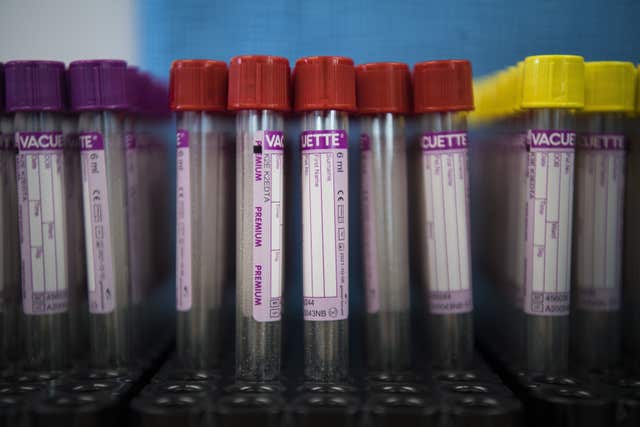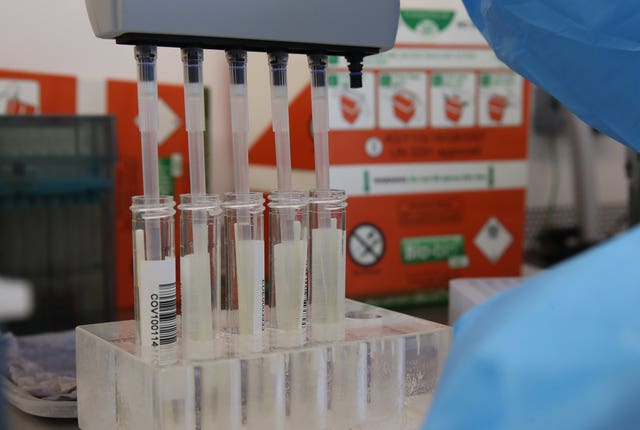Scientists identify how some Covid patients develop life-threatening blood clots
The work was led by researchers from RCSI University of Medicine and Health Sciences.

Scientists in Ireland have identified how some Covid-19 patients can develop life-threatening clots.
The researchers said the findings could lead to therapies that prevent it from happening.
The work, led by researchers from RCSI University of Medicine and Health Sciences, is published in the Journal of Thrombosis and Haemostasis.
Previous research has established that blood clotting is a significant cause of death in patients with Covid-19.

To understand why clotting happens, the researchers analysed blood samples that were taken from patients with Covid-19 in the Beaumont Hospital Intensive Care Unit in Dublin.
They found that the balance between a protein that causes clotting, called von Willebrand Factor (VWF), and its regulator, called Adamts13, is severely disrupted in patients with severe Covid-19.
When compared to control groups, the blood of Covid-19 patients had higher levels of the pro-clotting VWF molecules and lower levels of the anti-clotting Adamts13.
The researchers also identified other changes in proteins that caused the reduction of Adamts13.
Dr Jamie O’Sullivan, the study’s author and research lecturer within the Irish Centre for Vascular Biology at RCSI, said that the research helps provide insights into the mechanisms that cause severe blood clots in patients with Covid-19.
Dr O’Sullivan said it is critical to developing more effective treatments.
“We looked at the markers in the blood of these patients and tried to understand what was underpinning the blood clotting,” Dr O’Sullivan added.
“We observed elevated levels of the protein, VWF.
“This is large, sticky adhesive-like protein that helps to bind platelets within the blood. It prevents people from bleeding excessively.
“We saw in patients with Covid-19 it was really elevated, five to six fold above normal levels.
“Then we looked at why the levels are so elevated and could we reduce it or use it as a therapeutic for patients.
“We also have this parallel of a reduced level of another protein or enzyme in the blood that would usually help to regulate blood clotting, know as Adamts13.
“We see that level of this anti-clotting are low in the blood of patients with Covid-19 creating a perfect storm for clotting complications in patients with severe infection.

“While more research is needed to determine whether targets aimed at correcting the levels of Adamts13 and VWF may be a successful therapeutic intervention, it is important that we continue to develop therapies for patients with Covid-19.
“It’s very much in its infancy and to the best of my knowledge it’s something being researched.”
Dr O’Sullivan added: “Covid-19 vaccines will continue to be unavailable to many people throughout the world, and it is important that we provide effective treatments to them and to those with breakthrough infections.”
This work was funded by Irish Covid-19 Vasculopathy Study (ICVS) through the Health Research Board Covid-19 Rapid Response award as well as a philanthropic grant from the 3M Foundation to RCSI University of Medicine and Health Sciences in support of Covid-19 research.
The research was also led by Professor James O’Donnell of the RCSI and their clinical colleagues in Beaumont Hospital.





